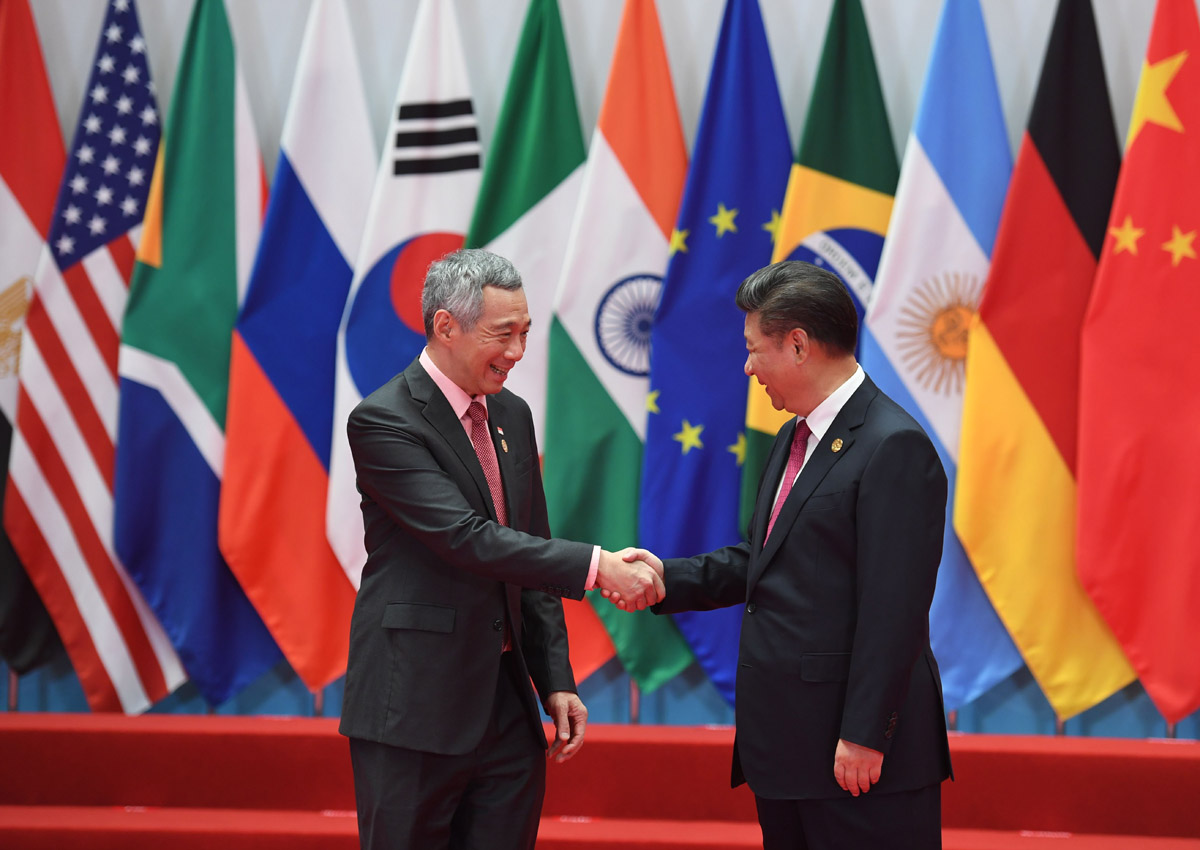While there might be differences of views on some issues, bilateral co-operation between Singapore and China is progressing on many fronts, said Prime Minister Lee Hsien Loong .
Both countries, being different, will naturally have different perspectives on some issues, Mr Lee said yesterday in response to a question on perceived tensions over the Republic’s role as country-coordinator for ASEAN-China relations.
He added the key is to manage and accept the different perspectives and not allow them to affect the overall relationship, which he said was in “working shape”.
“We accept that sometimes there will be issues and things may take time. This is normal between any two countries, particularly two with a very close relationship,” Mr Lee told Singapore media at the end of a four-day working visit that included meetings with Chinese President Xi Jinping and Chongqing party boss Sun Zhengcai.
He pointed out that Mr Xi, in their meeting in Hangzhou last Friday, had urged both sides to respect each other’s perspectives and to work towards greater understanding when they disagree.
Mr Lee, in turn, told Mr Xi that Singapore hoped to act as an honest broker in bringing people closer together through its three-year stint as ASEAN-China relations coordinator, which began in August last year.
Last month, a Chinese Foreign Ministry spokesman urged Singapore to respect China’s position on the South China Sea issue and to advance ASEAN-China relations on the condition of not interfering in the maritime dispute between Beijing and several ASEAN nations.
The remarks, coming after China rejected an arbitral tribunal ruling on July 12 against its maritime claims in the South China Sea, were seen as a veiled criticism of Sing- apore’s friendship with the United States and support of the US’ continued presence in the region.
In his National Day Rally speech on Aug 21, Mr Lee outlined Singa- pore’s foreign policy principle of acting independently and in its own national interests, such as ensuring freedom of navigation in the South China Sea.
Yesterday, Mr Lee said Singapore and China are cooperating in many areas that are win-win in nature and it “would be a pity” for both sides if these were to slow down.
He cited how the Chongqing Connectivity Initiative (CCI) – the third government-led project between both sides – has made progress in its priority sectors in finance, telecommunications, aviation and logistics.
For instance, Mr Lee said both sides are exploring a new logistical route southwards of Chongqing into the Beibu Bay through Guangxi’s Qinzhou port city, in anticipation of transportation capacity on the Yangtze River reaching saturation.
Also, both sides are looking at using the CCI, which aims to promote connectivity within China and with other states, to test bed new policies or new emphasis in its development strategies, he added.
Promising ideas can be put up at the upcoming meeting of the Joint Council for Bilateral Cooperation, a high-level mechanism overseeing bilateral ties, said Mr Lee, who visited Chongqing last Saturday.
KEY G-20 OUTCOMES
- A G-20 blueprint on innovative growth to harness new drivers for the global economy.
- A pledge to use multiple policy tools – fiscal, monetary and structural reforms – to tackle short-term risks while exploring longer-term growth.
- A commitment to help the Paris Agreement on cutting global warming emissions go into force early.
- An action plan to facilitate implementation of the United Nations 2030 Agenda for Sustainable Development.
- Combat global tax evasion and build up taxation mechanisms in less developed economies. Global taxation research centre to be set up in China.
- Boost anti-graft efforts, including setting up a research centre on fugitive repatriation and asset recovery.

This article was first published on September 6, 2016.
Get a copy of The Straits Times or go to straitstimes.com for more stories.




























